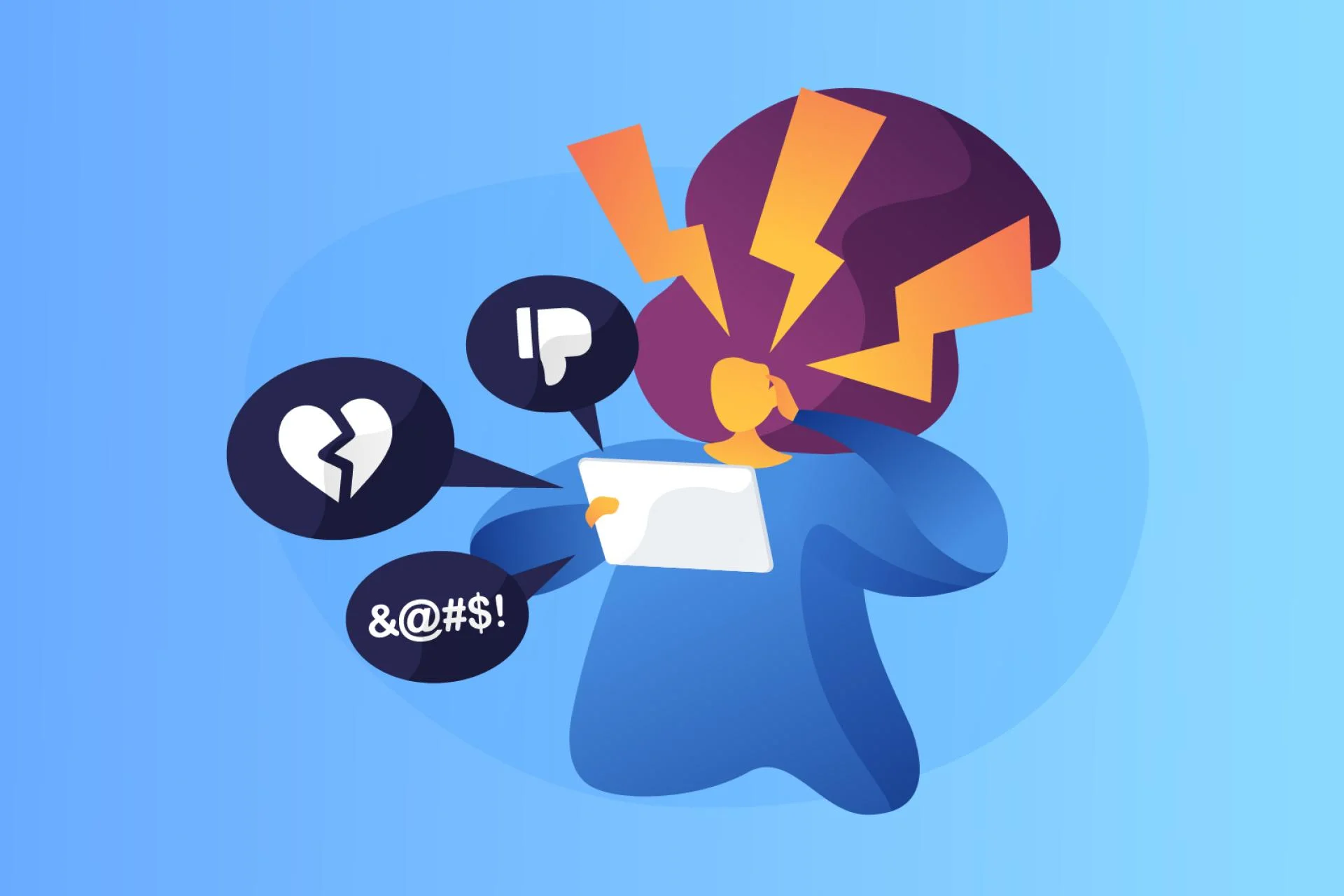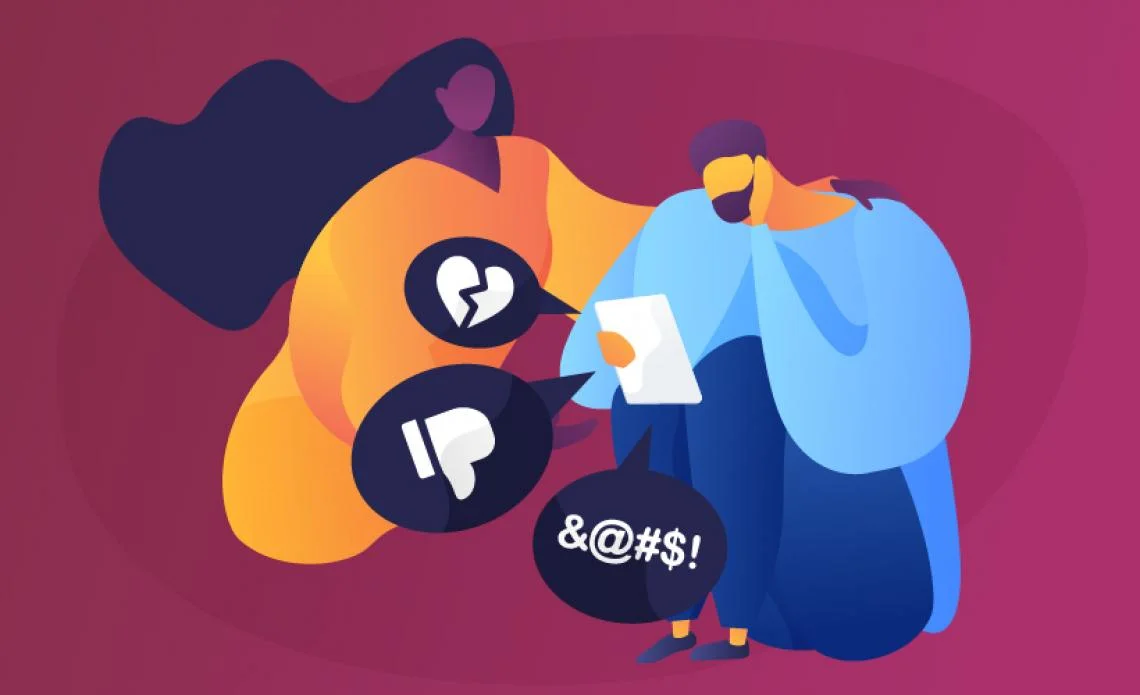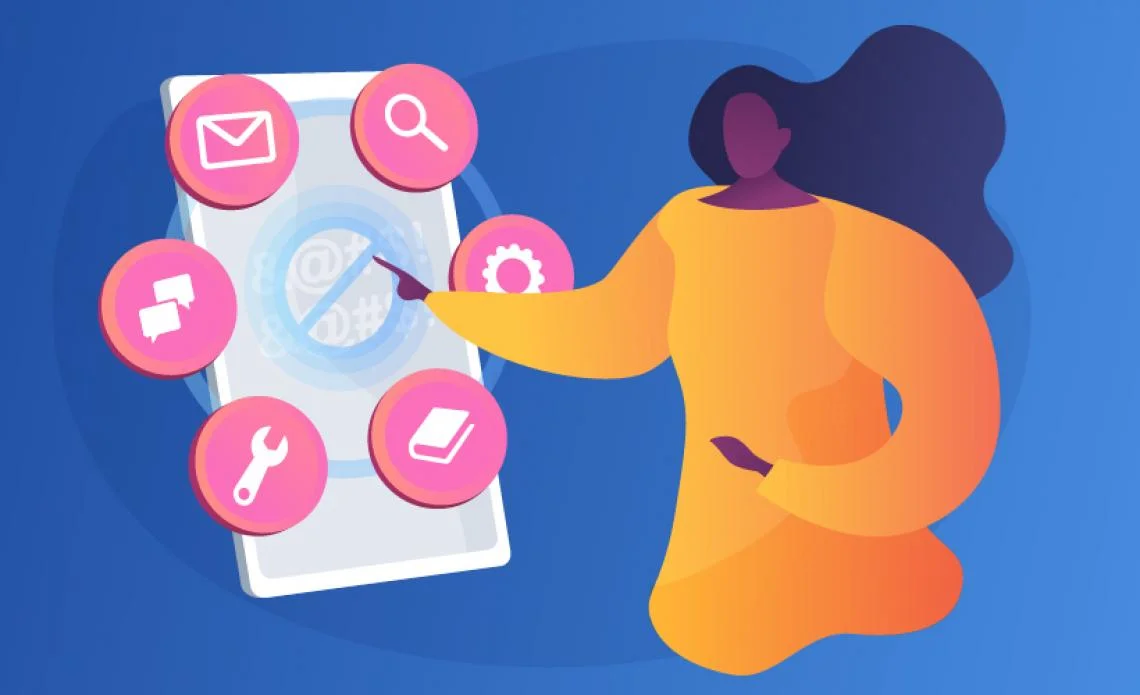Anyone can be a victim of cyberbullying, but children and young people are particularly vulnerable to it. Here you will find the most frequently asked questions and answers on this topic, as well as tips on how to cope with it.
1. What is cyberbullying?
Bullying is when someone repeatedly harms, annoys, intimidates or embarrasses another person. Cyberbullying is no different to conventional bullying, but is carried out using digital technologies. Cyberbullying can occur on social media, but also on messaging apps, gaming platforms and mobile phones. Here are a few examples:
- Someone spreads lies about a person on social media or posts embarrassing photos or videos of them.
- Someone uses messaging apps to send hurtful, abusive or threatening messages, images or videos.
- Someone impersonates someone else and sends nasty messages in their name or using fake accounts.
When bullying takes place online, it can feel as if you’re constantly being attacked.
2. Am I being bullied online?
Friends make jokes, both with and about each other. Sometimes, however, it’s hard to tell whether someone is just joking or intentionally trying to hurt you. If you feel hurt or think that others are laughing at you instead of with you, then the joke has gone too far. If you ask the person to stop, but they continue anyway, then that could be bullying.
Whatever you call it, if you feel bad and the behavior doesn’t stop, then you should get help. Combating cyberbullying isn’t just about clearly naming the bullies, it’s also about understanding that every person deserves respect. That applies both online and in real life.
3. What effects can cyberbullying have?
When bullying takes place online, it can feel as if you’re constantly being attacked, even when you’re at home. This creates a feeling of powerlessness, a sense that there is no escape. This can affect a person in several ways:
- Mentally: You feel insecure or stupid, frightened or even angry.
- Emotionally: You feel ashamed or lose interest in things you actually love.
- Physically: You are tired or experience symptoms such as stomach aches or headaches.
Cyberbullying can affect us in many ways. However, it is important to be aware that even difficult situations can be overcome. You can regain your self-confidence and health.
If you think you’re being bullied, seek help from someone you trust.
4. What should I do if someone bullies me online?
Recognizing bullying and labeling it as such, can help to put a stop to it.
If you think you’re being bullied, seek help from someone you trust, such as your parents, a close family member or another trusted person. At school, you can reach out to a teacher or counselor.
If you don’t feel you can talk to anyone you know, you can also have an anonymous phone conversation or web chat with a professional counselor at an organization like Pro Juventute.
If the bullying is happening on a social media platform, consider blocking the bully and reporting their behavior to the platform. Social media companies have an obligation to protect their users. It can be helpful to collect evidence (such as text messages or screenshots of social media posts) to show what has been going on.
If you are in immediate danger, you should contact the police or the emergency services without delay.
5. Do I have to go offline to escape cyberbullying?
Being online has many benefits and can bring you a lot of joy. However, it also entails risks that you need to protect yourself against.
If you experience cyberbullying, consider deleting certain apps or staying offline for a while to give yourself time to recover. Staying away from the internet is not a long-term solution, though. You have done nothing wrong, so why should you be punished?
We all want cyberbullying to stop. That’s precisely why it’s so important to report it if it happens to us. Those around you can only take action and support you if they are aware of the situation. Creating the kind of internet in which we feel at ease goes far beyond calling out bullies, however. We also need to consider whether what we ourselves share or say online could hurt others.
6. How can I protect myself online?
Always think twice before posting or sharing anything on digital platforms. It could stay online forever and could be used to harm you later. Do not share any personal information such as your address, phone number or the name of your school.
Learn about the privacy settings of your social media apps. Here are some things you can do on many platforms:
- In the privacy settings, you can specify who can view your profile, send you messages or comment on your posts.
- You can report hurtful comments, messages, photos and videos and request that they be deleted.
- You can block people so they are no longer able to see your profile or contact you.
- You can also choose for comments by certain people to be visible only to them, without completely blocking them.
- You can delete posts from your profile or hide them from certain people.
- On most social media platforms, users are not notified if you block, restrict or report them.
Do you need mental health support? Or do you just want to learn more about the subject? You can find more information here.
This text is based on the article “Cyberbullying: What is it and how to stop it”


